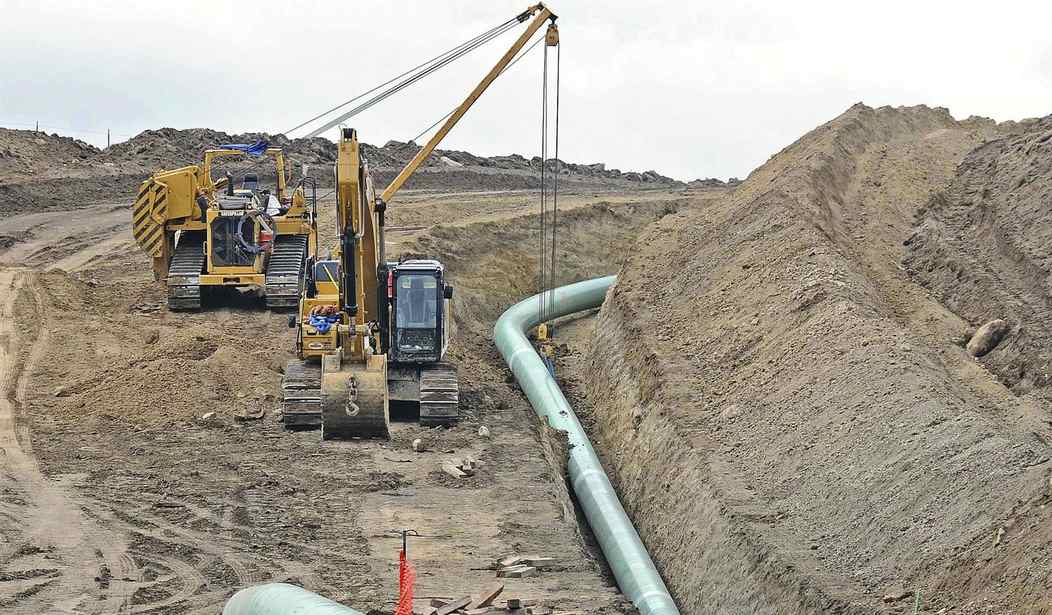Over the past decade, there has been increasing interest in using hydrogen as a fuel source on a large scale for a variety of reasons. Several projects are already either in the planning stages or underway seeking to make this a reality. But in order for that to happen, we’re going to need to not only create a lot more hydrogen but establish ways to move it around the country. That means we’re going to need pipelines for it. But the requirements for transporting hydrogen are different than those for natural gas, so we’ll either need to make modifications to existing gas lines or build new pipelines from scratch. (Most likely a combination of both.) With that in mind, the Senate Energy and Natural Resources Committee has been meeting to explore what needs to be done and determine what regulations should be in place for these projects. Democrats on the committee seem eager to hand the regulatory responsibilities off to the Federal Energy Regulatory Commission (FERC) since they already handle similar regulatory responsibilities for the interstate transportation of oil and natural gas. But Republicans on the committee have been pushing back, claiming that the FERC could wind up crushing the nascent hydrogen energy industry before it even gets on its feet. This debate is an important one to watch since it would have a significant impact on America’s future energy opportunities. (SP Global)
Fed up with the US Federal Energy Regulatory Commission’s recent handling of natural gas projects, Republicans of the Senate Energy and Natural Resources Committee were reluctant to place regulatory authority over hydrogen pipelines in FERC’s hands during a July 19 hearing, fearing the consequences it could create for the natural gas industry.
“The current majority of the FERC wants to make it nearly impossible to upgrade pipelines or build new ones,” said ranking Republican Senator John Barrasso of Wyoming. “I’m concerned that some on the commission may seek to make the ability to ship higher blends of hydrogen a reason to impose new conditions on newer upgraded natural gas pipelines.”
The committee’s top Republicans have repeatedly pushed back against recent FERC actions that could delay or add new regulations to the permitting process for natural gas pipelines. Earlier this year, for instance, Barrasso warned that FERC’s proposed changes to the gas pipeline certification review process would delay pending projects, and he threatened to use the Congressional Review Act to turn back new FERC policies.
There have been some serious issues raised about how the FERC handles the regulation of natural gas pipelines recently. They have been trending toward overregulation, seemingly siding more with the “leave it in the ground” crowd. The Republicans on the committee are concerned that the agency will simply jump in with both feet and impose such strict regulations that pipelines for both hydrogen and natural gas may become economically unfeasible.
There are a few hurdles remaining in this process. First of all, it’s not entirely clear that the FERC even has the authority to regulate hydrogen pipelines. The commission derives the power to regulate interstate natural gas pipelines from the Natural Gas Act that was passed in the 1930s. It holds similar authority over oil pipelines through different legislation. But hydrogen is a new fuel by comparison and Congress really hasn’t addressed the issue.
It’s been suggested that hydrogen infrastructure could be placed under the regulatory auspices of the Interstate Commerce Act and that might place it in the domain of the FERC but it could also fall under the Interstate Transportation Board. Some of the Republicans are clearly leaning toward the latter. But the one thing we don’t want to see is the entire process grinding to a halt over procedural issues and the risk of overregulation.
Why any of the Democrats would be motivated to do anything to slow the growth of hydrogen energy is a mystery. Hydrogen has no carbon footprint, so that should make them happy. And while it’s flammable, it tends to dissipate quickly if it leaks and it’s not as toxic to human beings as natural gas. (You still shouldn’t go around intentionally inhaling it, however, as bad things will still happen.)
Hydrogen has its own problems in terms of using it as a fuel as we’ve discussed here previously. We have an almost unlimited supply of it available since you can get it from seawater, but it still requires more energy to separate the hydrogen from the water than you get from burning the resultant fuel. And the energy needed to run that separation process has to come from somewhere, which usually involves fossil fuels.
But a move to hydrogen energy will at least open up other options for us in the future. Cars powered by hydrogen cells are currently of limited use because of the difficulty in finding more fuel for them. Broader availability of hydrogen on a commercial level could alleviate that problem. But none of it will happen if Congress breaks out its regulatory pens and makes the entire industry untenable.








Join the conversation as a VIP Member